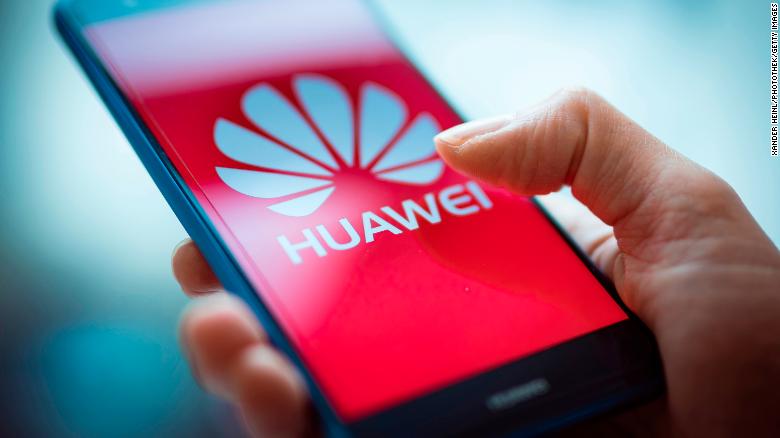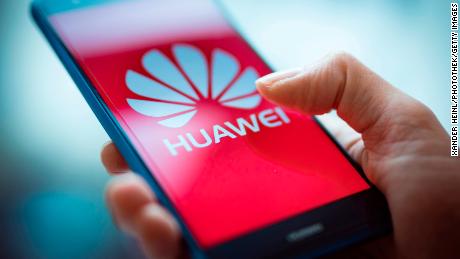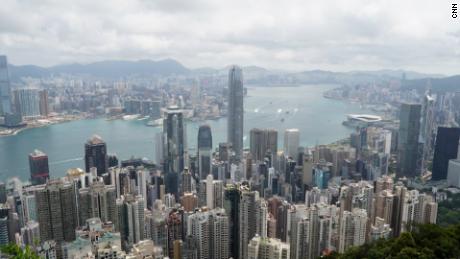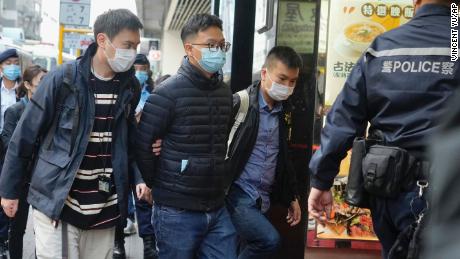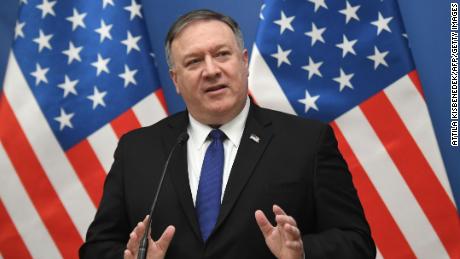Hong Kong (CNN Business)Huawei smartphones are killing the iPhone in China.
Demand for the Chinese tech company's devices is red hot even though the country's overall market for smartphones is shrinking. Huawei's China sales rocketed more than 20% in the final quarter of 2018, and experts say that's partly due to the US government's global campaign against the company.
"The latest tension between the US and China raised the patriotism in Chinese consumers," said Jusy Hong, an analyst at research firm IHS Markit.
He pointed out that some Chinese companies encouraged employees to buy Huawei phones late last year. The moves were a gesture of support after the firm's chief financial officer was arrested in Canada in early December at the request of the United States.
Huawei's booming sales show how major parts of its business continue to thrive even as the United States tries to persuade other countries to shut Huawei products out of 5G wireless networks and pursues criminal charges against it. The company expects to overtake Samsung as the world's biggest smartphone maker by next year.
Huawei sold 30 million phones in China in the last three months of 2018, nearly three times as many as Apple (AAPL), according to data published this week by research firms Canalys and IDC. Apple's sales plunged almost 20%.
'Cult status'
Huawei's success in China, the world's largest smartphone market, is about more than geopolitics.
Chinese consumers love its flagship, high-end phones because they have great cameras, cutting edge technology and cost less than the latest iPhones, according to analysts. And by offering a selection of cheaper phones, Huawei is able to target a bigger market.
It also benefited from the troubles this year at ZTE (ZTCOF), a rival Chinese smartphone and telecommunications equipment maker. ZTE was banned by the US government from buying crucial American parts for months last year as punishment for failing to honor a deal that settled US claims that the company violated sanctions on Iran.
ZTE's smartphone sales fell by nearly half last year, and "this volume mostly went to Huawei," Hong said.
Two other Chinese rivals, Oppo and Vivo, are nipping at Huawei's heels, but their sales grew by less than 10% in the fourth quarter of last year. Xiaomi, another top Chinese brand that has expanded aggressively in India and Europe, had a disastrous quarter, suffering a 28% plunge in sales, according to Canalys.
Huawei and its founder, Ren Zhengfei, enjoy cult status in China, according to Canalys analyst Nicole Peng.
Most Chinese see Ren, who started his company with a few thousand dollars and built it into a $100 billion behemoth, "as a highly respectable person," Peng said. That reverence extends to the Huawei brand.
Under fire from the US
Huawei's international reputation, on the other hand, is taking a beating.
A US-led campaign against Huawei has resulted in a growing number of countries considering potential restrictions on the use of Huawei's telecommunications equipment in the construction of 5G networks, which are set to provide superfast wireless internet in the coming years.
Washington says the Chinese government could use Huawei equipment to spy on other nations, although it hasn't publicly provided any evidence. Huawei denies that any of its products pose national security risks and says it would refuse any request by Beijing to use them for espionage.
Australia and New Zealand both blocked the company last year from providing equipment for 5G networks.
Huawei has pushed back against what it calls "irresponsible decisions" by some countries that it says were based on "ideological and geopolitical considerations" rather than legitimate concerns about technology.
The US Department of Justice has also charged Huawei with violating sanctions on Iran and stealing technology from T-Mobile (TMUS). Officials are seeking the extradition of CFO Meng Wanzhou from Canada.
Huawei and Meng deny any wrongdoing.
